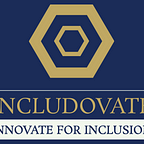Legal Empowerment of Children with Disabilities in South East Asia and Pacific Region
By James McDougall
Includovate is working on a project for the UNICEF East Asia and the Pacific Regional Office (UNICEF EAPRO) which aims to strengthen the capacity of Organisations of Persons with Disabilities (OPDs) to support children with disabilities to claim their rights. Since the historic development of the United Nations Convention on the Rights of Persons with Disabilities (CRPD) adopted by the United Nations General Assembly in 2006, OPDs have been working tirelessly to support persons with disabilities in their engagement through policy development and advocacy.
At this stage, with the considerable work required to shift prejudice, build awareness, and identify effective tools of access and implementation, many OPDs have not been able to give attention to the challenges for children with disabilities.
The work of the “Empowering Children with Disabilities and their Legal Representatives for Effectively Claiming their Rights” Project forms part of a broader plan to improve the available mechanisms to support the implementation of the rights of children with disabilities in the East Asia and the Pacific region (EAPR).
Our project has been examining and beginning the work to address the gap between articulation of their rights and their enforcement and enjoyment by children with disabilities.
So far, we have conducted a stocktake of the existing work of OPDs in the region with children with disabilities and the challenges that they face. Our initial findings have included noting that building respectful collaboration between OPDs and government agencies is important for effective advocacy; and that there are significant opportunities for greater information sharing across sectors and between stakeholders. Experiences and programs are varied but there is currently not a lot of work undertaken directly with legal or paralegal experts. Many programs are currently focused on practical issues of access and support. We have also noted that many OPDs struggle with access to sustained funding and technical support, particularly in Cambodia, Laos and Myanmar.
Based on this preliminary work, we have developed some initial recommendations for capacity building and the need for increasing cooperation of OPDs and partners. Hopefully they will stimulate discussion about identifying priorities and opportunities. The recommendations recognise that gaps in information (including data collection) and understanding of the rights of children with disabilities may act as barriers to building capability and access for children to voice and assert their rights.
Recognising their existing work, consideration should be given as to how to support the independent and authoritative voices of OPDs both with national governments and regionally in partnership with ADF. Resources and tools will be required to empower children and families. Other areas addressed by recommendations include the need for further research and further work on the building blocks for effective legal empowerment partnerships.
We are now in the midst of the second stage which is examining in greater depth the situation in two countries in the region, Cambodia, and Thailand. Interestingly as we begin to speak with children with disabilities, we are seeing that sometimes they have a stronger understanding of their own rights than their families. It may be necessary to explore how to enable parents of children with disabilities to listen more carefully to their children and support their efforts. It is clear that education is a pathway that children have a strong sense will provide them with opportunities that they are excited about.
Following this further research, the Project will develop tools and resources and map available support. The eventual aim is that the knowledge and lessons learned will be shared within the region and beyond.
Along the way, we have already met many committed and skilled people with disabilities who work with their communities as advocates and champions. The stories of the challenges that they have overcome and the challenges that remain are a wonderful guide for our work. We are looking forward to hearing more of their work and hearing directly from children and young people with disabilities and their parents as the project continues.
About the Author
James McDougall is one of Australia’s most experienced child rights experts with experience and knowledge in youth justice, child protection, children’s and youth services, family violence and child safety. James has played a key role in the establishment and ongoing achievements of the Australian Child Rights Taskforce, a key coordinating and reporting coalition for child rights reporting and advocacy in Australia.
Includovate is a feminist research incubator that “walks the talk”. Includovate is an Australian social enterprise consisting of a consulting firm and research incubator that designs solutions for gender equality and social inclusion. Its mission is to incubate transformative and inclusive solutions for measuring, studying, and changing discriminatory norms that lead to poverty, inequality, and injustice. To know more about us at Includovate, follow our social media: @includovate, LinkedIn, Facebook, Instagram.
